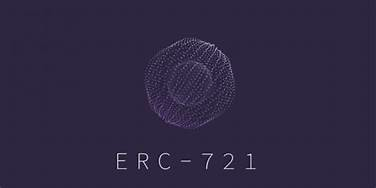
Apparently this is a superfluous question, however it is best to remember.
Do you know the Non-Fungible-Token, the NFT?
Well they are particular tokens that have the extraordinary peculiarity of being unique.
Like all things, however, they have two names: a technical one and a "common" one... I smile, thinking of a friend of mine, an Alfa Romeo fan, who calls the Giulia of the 60's Giulia 105 to differentiate it from the new Giulia.
He associates the name of the car with the project number of the Alfa Romeo Office.
Same thing goes for tokens.
NFT is the common name for the token type, while at a technical level, the name is: ERC-721 token.
Why does it have this technical name?
The blockchain has brought to the whole world an extraordinary innovation: the democratic nature of a registry through publicity (which means public, in this case) to which everyone can propose changes that are endorsed by the community, if they are indeed valid.
In a way it's the same thing that happens to Linux: an open source operating system that everyone can modify and create their own version of OS.

On the Ethereum blockchain, the same thing happens, only instead of creating an operating system for your own use, you create applications that serve to improve the usability of the entire system.

EIP (Ethereum Improvement Proposal)
To achieve this, it is necessary to create an EIP (Ethereum Improvement Proposal) where you propose an improvement to the blockchain.
These proposals are numbered progressively according to the arrival number.
After the start of a study, refinements follow until the final code is reached.
When it is final, the name of the proposal changes and becomes ERC (Ethereum Request for Comments) with the proposal number suffixed.
This explains why NFTs are technically called ERC-721 tokens.
ERC-721R
Let's now talk about this innovation they would like to bring to NFTs.
The change that will make these NFTs special, would be the possibility of a refund once the token is purchased.
In what sense?
Let's say that the could be the "satisfied or refunded" formula in the crypto sphere.
Once the token is purchased, the corresponding value is frozen in a smart-contract, preventing a possible Rug-pull by the project owners.
In this way, in case the project is not as successful as hoped, and ends badly, investors would be refunded the cost of the token, minus, of course, the gas fees used to return the paid value of the token.
Interesting?
In my opinion it is very interesting and applicable as it would have security implications for investors as it increases the responsibility of start-ups to study solid projects and not failures.
If it would become a standard as ERC-721 has become, the possibility of scam would be reduced a lot: until the project starts in an effective way, the corresponding money of NFT is not available.
Obviously, this will impose limitations on the growth of start-ups, but both creators and investors will have more certainty in the result.
I leave you the site where they discuss this possibility of refining the token:
In this site, instead, you can find the technical discussion and the lines of code to insert in your smart-contract to create this kind of token.
https://github.com/exo-digital-labs/ERC721R
If you think this might be a good idea let me know in the comments!
Posted Using LeoFinance Beta